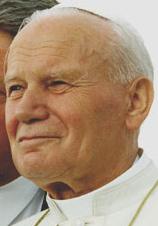At the Vatican the cardinals look at the family. Lots of things are decided there and lots of happenings in the family make it that people may be happy or unhappy. The joy or gladness people may have depends a lot on what happens in the family and at work.
When we look at the people around us it looks like many have lost the 'joy de vivre'. We see many faces with their chin hanging unto the ground and people walking like zombies or with droopy eyes. Many seem to have lost the joy in their life.
Perhaps it is not bad for them to resource and to go looking for the reasons why they have lost that preciousness energy of life. It would not be bad if they, like us, would go looking for the source of joy. Perhaps you think that is not really necessary, or you think it is only having enough money that can bring joy.
For over 40 years, the Williamsburg Conference has provided a unique opportunity for praise and fellowship. From December 27th until December 31st at 12:00 noon, Christadelphians will be looking at joy and gladness, at the Holiday Inn Patriot in Williamsburg, VA.
Morning sessions are devoted to building an understanding of the chosen theme through numerous sets of scriptural readings, exhortations, and hymns. Periods of quiet meditation throughout the morning allow us to focus on the personal implications of what we have considered and on our individual relationships with God.
The afternoons are devoted to smaller group sessions that again centre on the theme. The goal is to discuss how we can apply the thoughts developed in the morning sessions to our own service. Group leaders guide but never dominate the discussions. Group selection is random, so there is no age segregation and many brothers and sisters meet for the first time. This is all intentional. Participants find that they are able to speak from the heart. For this reason many consider the afternoons extremely beneficial and the heart of the Conference.
Evening programs are more relaxed and varied. Usually, a music program will occupy one evening. A discussion of the “Signs of the Times” and “Prayer for Others” sessions will now be part of the evening programs.
Classes for young children ages 4-13 will be available, with parent participation. Please indicate on your registration if you are willing to help teach a children’s class for one hour on one day during the Conference.
A generous continental breakfast is available for free. All other meals are taken in local restaurants, at your own expense. These are wonderful times of getting to know new friends, and renewing old friendships.
Please plan to join us for several days of intensive spiritual growth and introspection—a period of close fellowship with our God and our spiritual family.
Registration
To register online and get more conference information, click here. Registration will end on December 22, but will reopen on December 27 at the hotel. If you know of anyone who wants to register but does not have internet access, please print the form below and give it to them or have them contact:Sis. Emilyclaire V. Walker
7515 Axton St
Springfield, VA 22151
(315) 651-3207
> Williamsburg Conference 2015 December 27-31 Joy and Gladness
>> Williamsburg Conference December 27-31, 2015


















































